
MSc. Aleksandra Garbacz
Second year of education at the Doctoral School
Discipline: biological sciences
Universitätsmedizin Greifswald, Institute of Immunology (Germany, Greifswald)
On August 28-September 10, 2023, I had the pleasure of completing a foreign research internship entitled: “Basics of modern methods in immunological laboratory: introduction and selected examples of their application” at the Universitätsmedizin Greifswald at the Institute of Immunology (Germany, Greifswald). My scientific supervisor was Dr. rer. nat. Grażyna Domańska. I completed the internship with the support of the ERASMUS+ program.
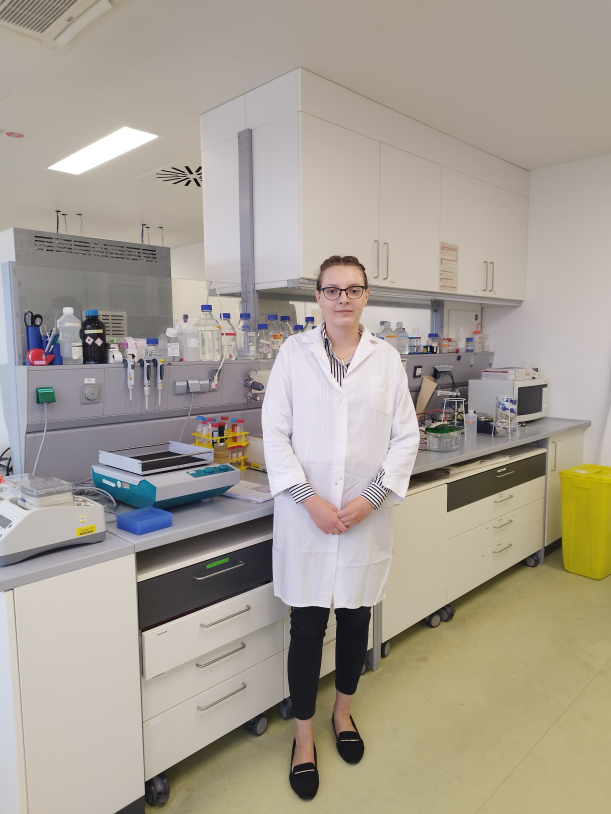 Photo 1. MSc. Aleksandra Garbacz at the Institute of Immunology
Photo 1. MSc. Aleksandra Garbacz at the Institute of Immunology
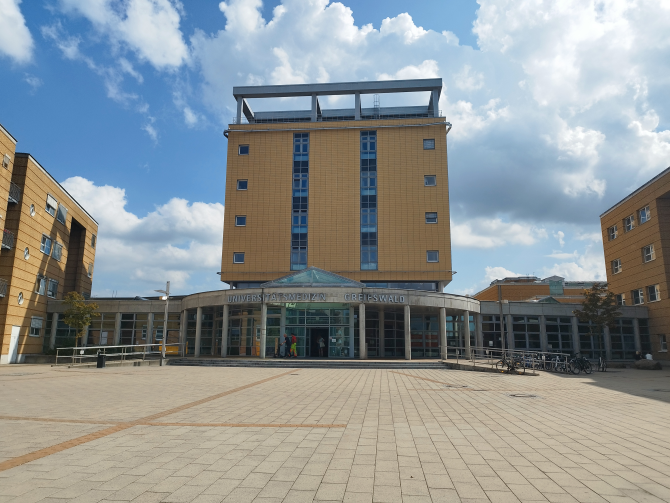 Fot. 2. Universitätsmedizin Greifswald (Germany)
Fot. 2. Universitätsmedizin Greifswald (Germany)
The aim of the trip was to expand knowledge and competences and acquire new research skills in the field of immunological research.
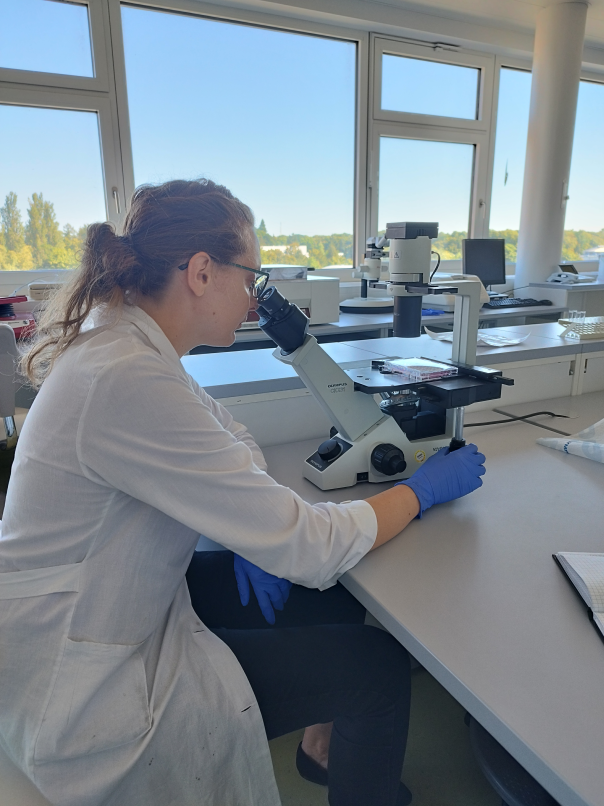 Photo 3. While working in the laboratory
Photo 3. While working in the laboratory
The internship program included:
- Laboratory tests in the field of immunology (e.g. Elisa test and flow cytometry).
- Isolation of different cell populations from blood, organs and tissues.
- Stimulation of isolated cell lines and measuring cytokines.
- Preparation of samples for HPLC-MS/MS (immunomodulation by the tryptophan metabolites).
- Application of animal models in immunological studies, using mice models as an example.
During the internship, I had the opportunity to get to know the employees, PhD students and students of the University, as well as the equipment located in the unit.
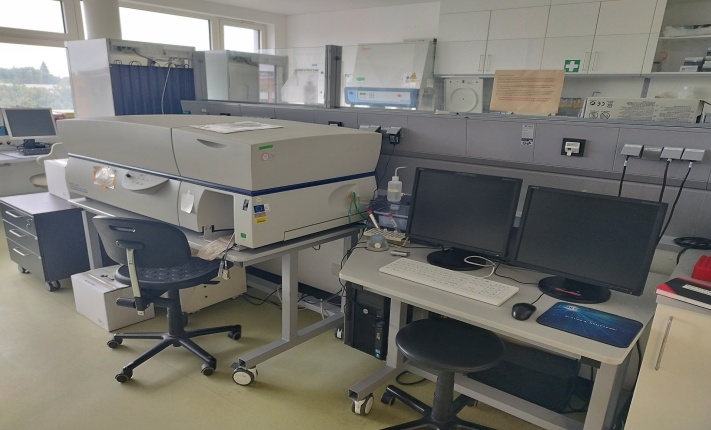
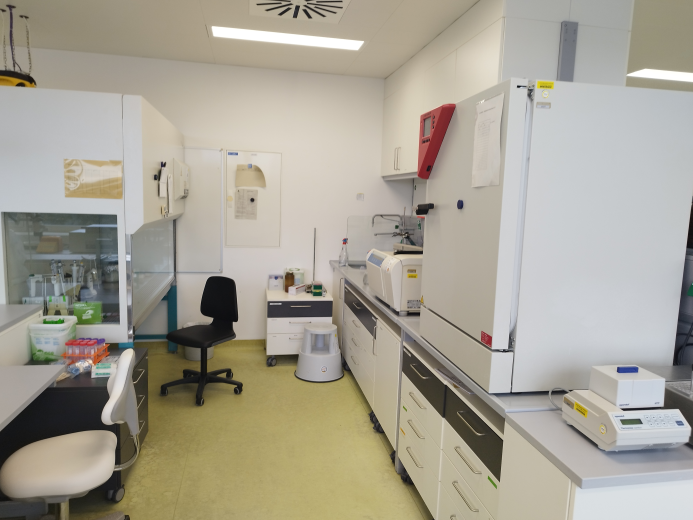 Photo 4-5. Laboratory of the Institute of Immunology
Photo 4-5. Laboratory of the Institute of Immunology
During the internship, in addition to performing planned tasks, I also became familiar with the culture of the region.
 Photo 6. The Ryck River in Greifswald
Photo 6. The Ryck River in Greifswald
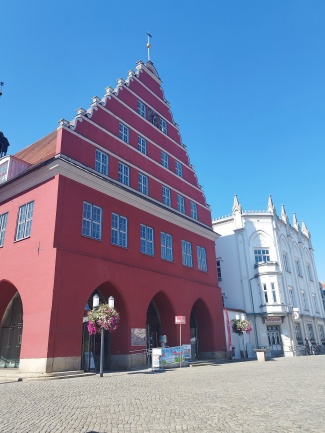 Photo 7. Market square in Greifswald
Photo 7. Market square in Greifswald
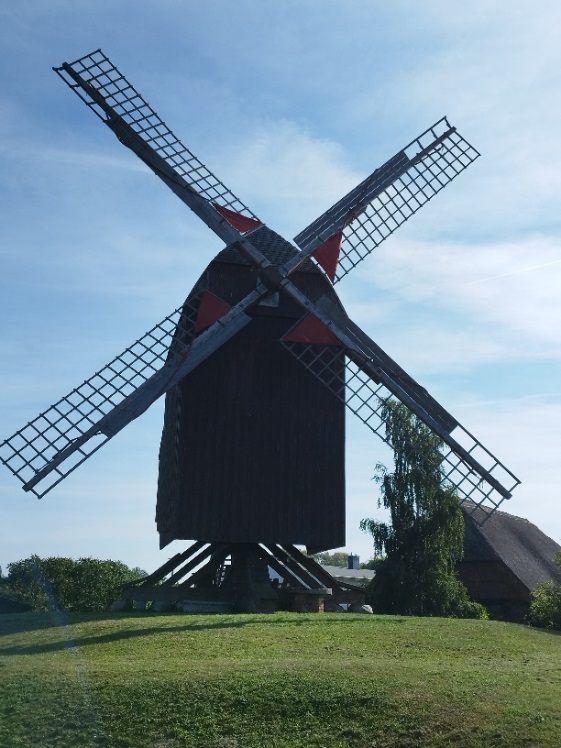 Photo 8. Historic Dutch-type windmill in Greifswald
Photo 8. Historic Dutch-type windmill in Greifswald
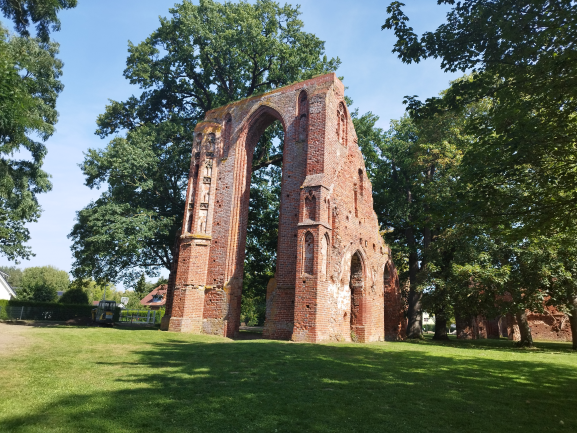 Photo 9. Ruins of the Eldena monastery in Greifswald
Photo 9. Ruins of the Eldena monastery in Greifswald
Participating in an internship in such a high-class scientific unit of international rank expanded my knowledge and competences and enabled me to acquire new research skills in the field of immunology, which increased my scientific potential. Moreover, it allowed me to meet many wonderful people.
University of Life Sciences in Lublin
13 Akademicka Street, 20-950 Lublin
VATIN 712 010 37 75
REGON no. 000001896
ePUAP: /UP-Lublin/SkrytkaESP
